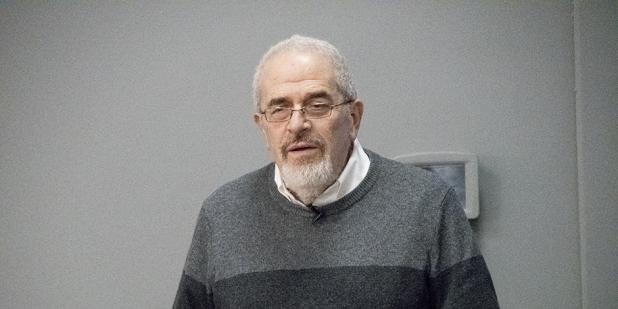Join us for a free one-day workshop for educators at the Japanese American National Museum, hosted by the USC U.S.-China Institute and the National Consortium for Teaching about Asia. This workshop will include a guided tour of the beloved exhibition Common Ground: The Heart of Community, slated to close permanently in January 2025. Following the tour, learn strategies for engaging students in the primary source artifacts, images, and documents found in JANM’s vast collection and discover classroom-ready resources to support teaching and learning about the Japanese American experience.
Video: Morris Rossabi on China And Mongolia Since 1990
The USC U.S. China Institute presents a talk by Morris Rossabi on the current situation between Mongolia and China.

Mongolians have often been suspicious of Beijing’s intentions, especially since Qing China occupied Mongolia and treated it as a colony from 1691 to 1911. Of even greater concern was that until 1950, Mao Zedong claimed that Mongolia was a Chinese province. Partly due to these political threats, Communist Mongolia sided with the Soviet Union in its disputes with the People's Republic of China from 1964 until the mid-1980s. After the collapse of Communism in Mongolia in 1990, Mongolia has, despite some misgivings, restored relations with China. Adopting policies advanced by international financial agencies (IMF, World Bank, Asian Development Bank), Mongolia has developed considerable trade with its neighbor, and China has become the largest investor in the country. China's elevated position has implications for Mongol's cultural, political, and economic relations with Taiwan, Russia, Japan, the West, and the Dalai Lama. This presentation considers the current situation, as well as prospects for the future.
This video is also available on the USCI YouTube Channel.
About the Speaker
Born in Alexandria, Egypt, Morris Rossabi (Ph.D., Columbia University) teaches Chinese and Mongolian history at the City University of New York and at Columbia University. Author or Editor of twenty-five books, including Khubilai Khan; Modern Mongolia; China and Inner Asia; Voyager from Xanadu, and The Mongols: A Very Short Introduction, he has lectured widely in East Asia, the Middle East, Europe, and the Unite States. He served as Chair of the Arts and Culture Committee of the Open Society, is on the Global Advisory Board of the Chamber Music Society of Lincoln Center, and has collaborated on exhibitions at the Metropolitan Museum of Art, the Los Angeles County Museum of Art, and the Asian Art Museum in San Francisco. He was awarded an Honorary Doctorate by the National University of Mongolia.
Featured Articles
Please join us for the Grad Mixer! Hosted by USC Annenberg Office of International Affairs, Enjoy food, drink and conversation with fellow students across USC Annenberg. Graduate students from any field are welcome to join, so it is a great opportunity to meet fellow students with IR/foreign policy-related research topics and interests.
RSVP link: https://forms.gle/1zer188RE9dCS6Ho6
Events
Hosted by USC Annenberg Office of International Affairs, enjoy food, drink and conversation with fellow international students.
Join us for an in-person conversation on Thursday, November 7th at 4pm with author David M. Lampton as he discusses his new book, Living U.S.-China Relations: From Cold War to Cold War. The book examines the history of U.S.-China relations across eight U.S. presidential administrations.




